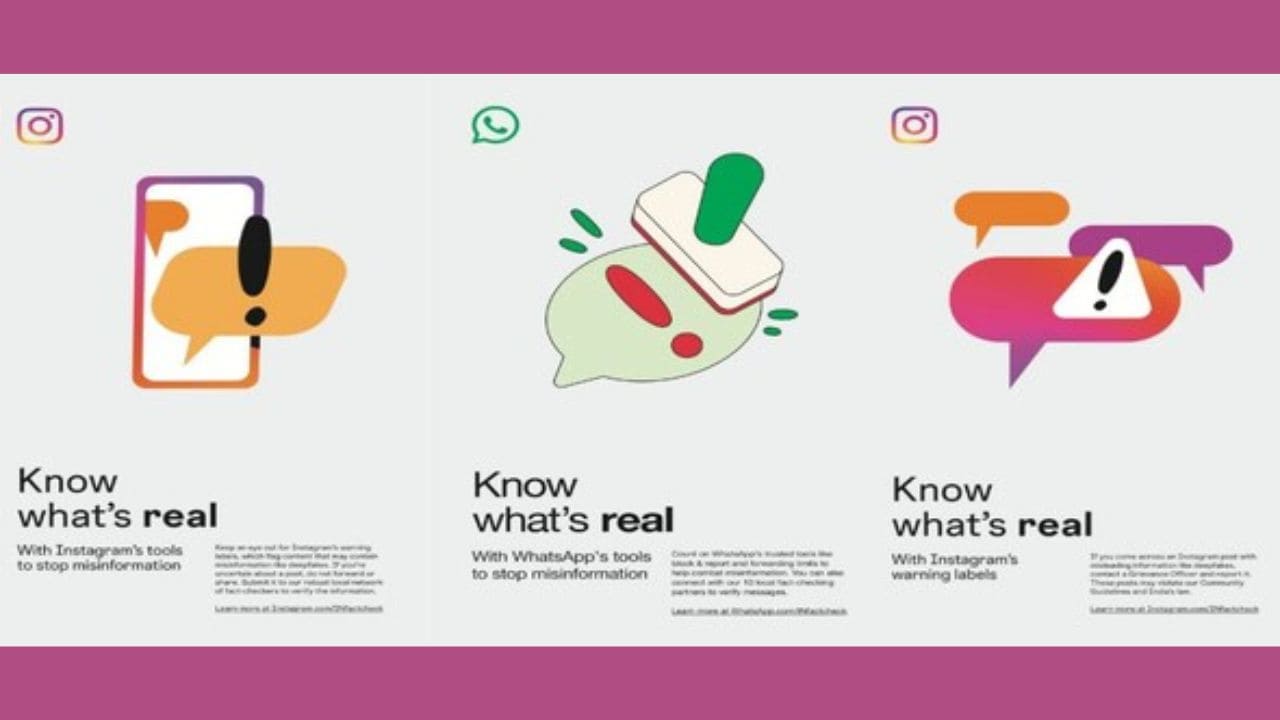Facebook and Whatsapp-owner Meta has launched a safety campaign ‘Know What’s Real’ to tackle the issue of misinformation online. The campaign aims to raise awareness about the importance of discerning truth from falsehood in the digital age. Meta’s campaign comes at a time when threats like deepfakes and misinformation are deeply concerning for governments and citizens across the world, particularly in election years.
Meta is also part of the several big tech firms globally who have pledged to help prevent deceptive AI content from interfering with this year’s global elections.
The “Tech Accord to Combat Deceptive Use of AI in 2024 Elections” is a set of commitments to deploy technology countering harmful AI-generated content meant to deceive voters. Signatories, including Meta, pledge to work collaboratively on tools to detect and address online distribution of such AI content, drive educational campaigns, and provide transparency, among other concrete steps.
The ‘Know What’s Real’ initiative, spanning eight weeks, is geared towards educating users on identifying and addressing misinformation prevalent on WhatsApp and Instagram. By promoting digital best practices and showcasing available safety tools, Meta hopes to empower its user base in navigating the complex landscape of online information.
Read More: Meta’s ad revenue surged 24 percent YoY; touches $38.7 bn in Q4
Key features of the campaign include highlighting the built-in safety measures within WhatsApp, such as the ability to block and report suspicious content, as well as the introduction of forward labels to help users identify potentially misleading information. The initiative also encourages individuals to verify dubious or inaccurate content through reputable fact-checking organisations accessible via WhatsApp Channels.
On Instagram, Meta has forged partnerships with a network of fact-checkers to verify the authenticity of information circulating on the platform.
Meta said that it employs warning labels for content deemed false, including deepfakes, to alert users to its lack of accuracy. Additionally, Meta restricts the reach of such content labeled as “False” by fact-checkers, thereby mitigating its potential impact on wider audiences.
As part of the campaign, Meta emphasises the importance of responsible content-sharing practices. Users are urged to refrain from forwarding or disseminating inauthentic content and instead are encouraged to report such instances to the designated grievance officer or independent fact-checking partners for verification.
The company stated that its fact-checking program in India includes partnerships with 11 independent fact-checking organisations which is one of the largest networks of fact-checking partners globally. It added that these partners have the capabilities to fact check content in 15 Indian languages and English – enabling people to identify, review, verify information and help prevent the spread of misinformation on Meta platforms.
Commenting on the programme, Shivnath Thukral, director, public policy India, Meta, said, the company is committed to fighting misinformation online. “We have invested in industry-leading programmes like setting up a robust network of independent fact-checkers that work to debunk false claims and help citizens access reliable information, including collaborating with Misinformation Combat Alliance (MCA) to launch a WhatsApp tipline to curb AI-generated misinformation.”
Recently, Meta also unveiled a dedicated fact-checking helpline on WhatsApp as part of the company’s effort to deal with the AI-generated content present online and help people connect with verified and credible information.
Thukral added that the ‘Know What’s Real’ campaign is “an extension of our ongoing efforts to prevent the spread of misinformation and serves as a simple safety guide to educate people on the role they can play to combat it.”
Read More: Meta to start labelling AI generated content across all Meta platforms
